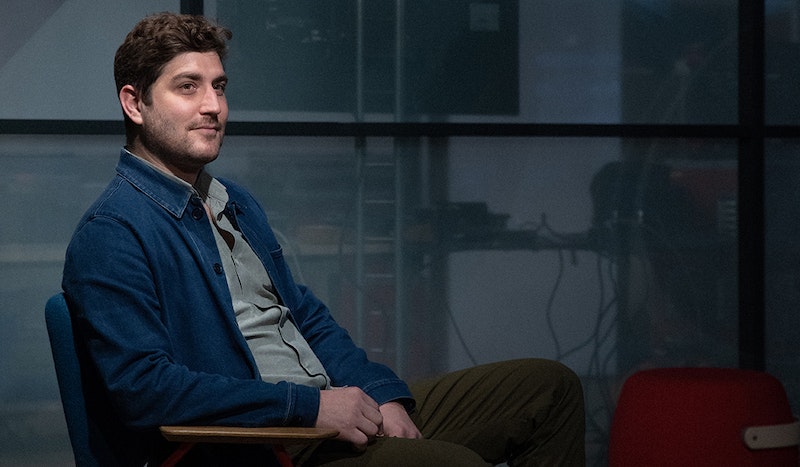France’s big intrapreneurship boom — where employees become entrepreneurs within their companies — started roughly in 2015. With the nation’s nascent startup ecosystem also starting to take off, companies saw it as a way to attract talent and retain employees. And workers loved the chance to innovate within the safety of a big company.
It led to the creation of security software company Heropolis at multinational Thales. At food giant Danone, Les 2 Vaches championed organic dairy at a time when organic wasn’t mainstream.
But since then, many companies — including Danone and Pernod-Ricard — have shuttered their programmes. Entrepreneurs blame unrealistic expectations, poor design and a lack of tolerance for failure.
“We’re at a point where lots of large companies have experimented with [corporate entrepreneurship] but it’s not easy promoting it and not having it designed to exploit [the worker] but to explore is a difficult task,” said Véronique Bouchard, professor of strategy and corporate entrepreneurship at EM Lyon.
“A lot of these programmes have been discontinued after a couple of years, or they have been reduced or focused more on larger projects, or fewer ideas.”
So is it all doom and gloom for intrapreneurship in France?
Unrealistic expectations spell failure from the start
Around 37% of French companies have already tested intrapreneurship, according to We Are Intrapreneurs, a group that helps organisations set up such programmes.
But the problem is, in Bouchard’s opinion, companies that failed had unrealistic expectations from the start. Because they want to engage as many people as possible and make it open to all, they end up with programmes that have to go through hundreds of ideas, draining resources.
👉 Read: Why most intrapreneurship programmes fail
At the same time, they think intrapreneurship will create truly disruptive innovation. But for Bouchard it will most likely be incremental innovation, meaning there is a gap between the various objectives of programmes.
Navigating internal politics
Vinci is one group that still has an ongoing programme. The construction company selects around a dozen projects after an initial callout and sends their creators to a training programme developed with the Stanford Center for Professional Development, where they spend one or two days a week for four months.
After that, the intrapreneur needs to find a sponsor from within the company to put in the initial development capital for the following six months.
Today, there are around 20 new business units within Vinci that have been created through the programme, according to Guillaume Bazouin, head of startup and intrapreneurs programme at Leonard, a division of the company. The two largest units now employ 30 people each.

“It’s hard for legacy construction companies to hire the best people out of school, so having a programme like this gives us an opportunity,” he said.
While the programme offers support to those who might not have taken the plunge otherwise, it's not a free ride. The company continues to pay a salary to the intrapreneur, but it doesn’t finance startup costs — that's left for the sponsor.
The goal is always for the project to stay in-house and become a part of the business. Only one company has spun out so far.
👉 Read: Intrapreneurs: stop trying to be like entrepreneurs
Waste Marketplace was founded by Jérome de Tomasi in the first round of Vinci’s programme. Since then it has become independent — as Vinci decided it wasn’t a core function for the business — and has raised €2m from external investors. Vinci still owns a little over 50% of the business.
While De Tomasi says the support offered by the programme helped him move from being a CFO to an entrepreneur — something he wouldn’t have done otherwise — there were challenges.
“You have a lot of security and comfort in the beginning, but you have to manage political things inside the group. For example, you leave your day job for some time and it’s difficult for management to accept. You have to find a sponsor for the initial capital, and it’s a little difficult in a group like Vinci,” he says.
“It was the first time they did it, we had to clear the way, open the doors to try and find a solution. At the beginning it wasn’t easy to find a good solution, you have to manage politics in a big group like Vinci.”
Right to fail
What makes intrapreneurship more complicated in France than other parts of Europe is the inability to allow failure.
Jean-Noël Chaintreuil, founder of Change Factory and We Are Intrapreneurs, says most companies want to have it perfect the first time, and if it’s not, it means the people aren't good enough. There's no freedom to fail and experiment.
People who are not directly involved in the project will look suspiciously at something where the failure rate can be three out of four
Bouchard agrees. “The ‘right to fail’ is lacking completely in the culture. That means other people who are not directly involved in the project will look suspiciously at something where the failure rate can be three out of four,” she says.
Another problem is the acceptance of a financial reward when French labour laws are very constricting.
“The idea that a normal employee could make it big because he created something amazing and is entitled to a share of the value created is an issue much more than in Anglo-Saxon countries," Bouchard adds.
To solve some of these problems, she suggests a new design for intrapreneurship programmes where companies select people and not projects, to become experts within the company and source projects not just from within the company but also from outside. Sodexo and Métropole Nice Côte d'Azur have been successful in creating this type of programme, she says.



